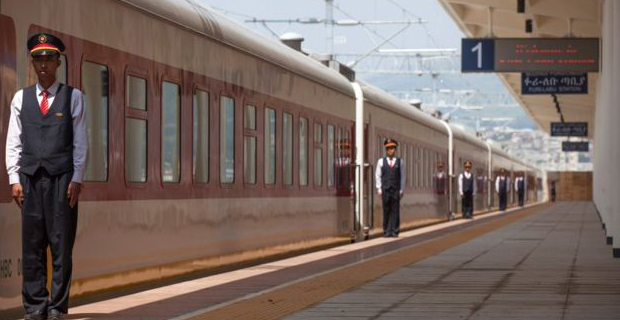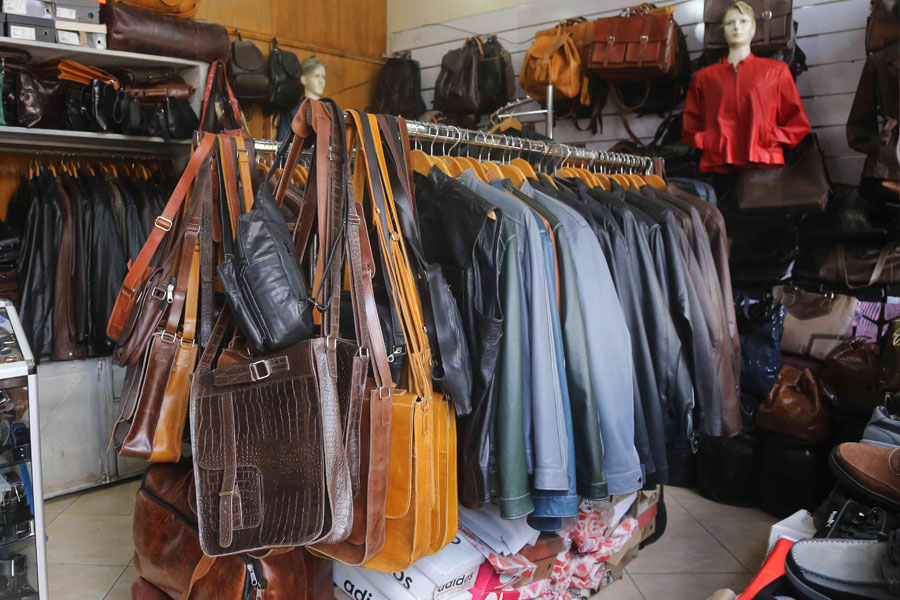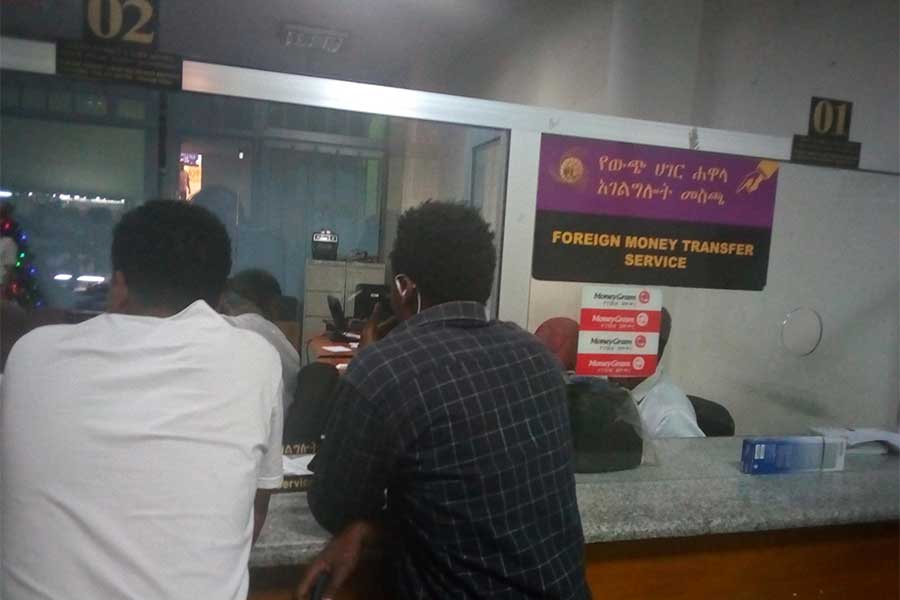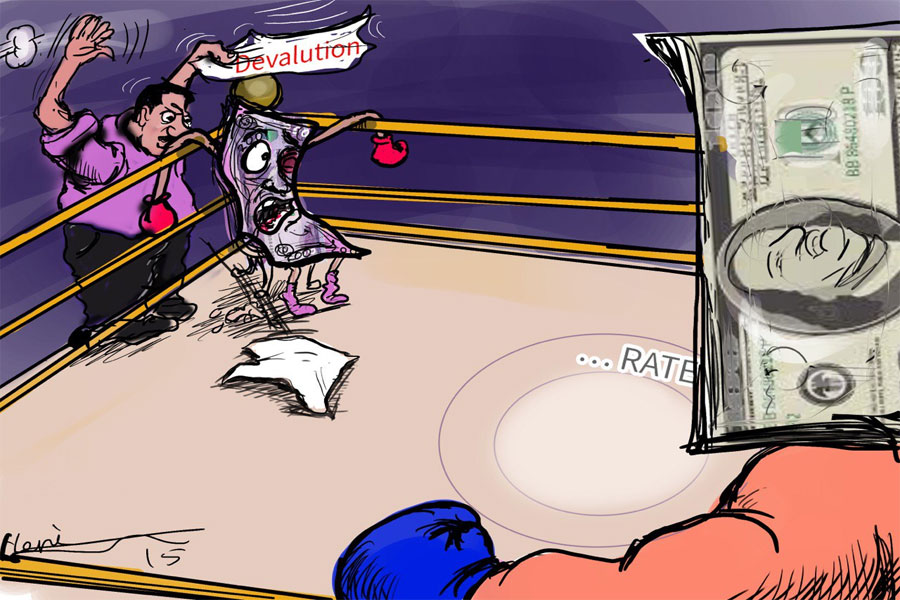
Fortune News | Dec 14,2019
Redwan Abedulkeder, a 40-year-old father of one, was a third-year medical student at Torhailoch Hospital before he dropped out this year due to health-related reasons.
Until last March, Redwan used to use an aeroplane to travel from and to Harar, where he resides. However, after the Ethiopian Airlines Boeing 737 Max 8 crash, he started to use a train.
The crash left fear in his mind and made him consider other means of transportation, including cross-country buses and trains.
Redwan travels to and from Addis Abeba and Harar at least four times a year.
He finally decided to use trains. He uses the Ethio-Djibouti Railway (EDR) train that runs for 746Km and was built by China Civil Engineering Construction Corporation and China Railway Engineering Corporation for 4.2 billion dollars, with 70pc of the financing secured from the Export-Import Bank of China.
The railway is the second operational rail service along with Addis Abeba Light Rail Transit, which gives service to 120,000 people a day with 41 light trains.
Two more rail routes are under construction, including the Awash-Kombolcha-Hara Gebeya-Meqelle railway project. Awash-Kombolcha-Hara Gebeya, the 398Km railway project, is 90pc completed, while the 216Km Woldia-Hara Gebya-Meqelle is 54pc completed.
However, he has begun to get frustrated with the security system of the company that operates the train, which was established by a bilateral agreement signed between Ethiopia and Djibouti. The company conducts security checks manually, since it does not have a security scanner machine.
The railway, which cut travelling time between Djibouti and Addis Abeba from three days to 12 hours, is managed and run by China Railway Engineering Corporation and China Civil Engineering Construction Company under a six-year contract at an annual fee of 60 million dollars.
Passengers took a manual security check at Lebu Station, Addis Ababa.
The Information Network Security Agency (INSA) has trained 80 people for three months on how to check customers manually and has placed them at four stations for manual security checks. Out of the 19 stations in Ethiopia and Djibouti, of which five stations including Lebu, Adama, Dire Dawa, Ali Sabieh and Nagad are opened for passenger service, Lebu, Adama, Mieso and Dire Dawa are the checkpoints that operate the manual security check.
"It takes too much time and creates inconvenience and discomfort to me,” Redwan said. “This kind of huge investment shouldn't operate without security x-ray machines."
Redwan is not the only one who is disappointed at this. Biniyam Birhanu, 24, a graduate from Dilla University in 2017, is also not happy about the check-in procedures to board the train.
Last month Biniyam was at Lebu Station, the current starting point of the train outside the capital, on his way to Dire Dawa to visit his friends, but he did not expect the railway check-in system to operate manually.
“I was surprised when the security people checked us manually,” he said. "I expected the security system to be like the airport."
Frustrated with the manual check-in, which on average takes seven minutes a person, Biniyam decided to take either a bus or a plane when he returns back to his home town.
On top of the seven minutes for the security checks, the passengers are supposed to stand in a long queue waiting for their turn.
Even though the bilateral and railway operation law says that cross-country railway transportation should have a security scanner to minimise the concern of the passengers, the railway still operates without a scanner.
The management of EDR also believes that manual check-in has risks.
Even though the bilateral and railway operation law says that cross-country railway transportation should have a security scanner to minimise the concern of the passengers, the railway still operates without a scanner.
“There are no grantees that assure you anything won't happen,” said Tibebe Terfe, safety director at EDR.
The railway is operating without the x-ray security scanners, not because the company has not considered the installation of the system, but because the forex crunch blocked it from proceeding with the procurement.
Three months before it started operations, the Ethiopian Railway Corporation attempted to procure the necessary security equipment. The technical and financial evaluation was also completed three months before the railway becomes operational.
Smith Detection, with more than 40 years of experience in the business, and Rapiscan, a manufacturer of security equipment for cargo, vehicle, parcel, and air cargo security inspection, were awarded to supply eight security machines.
The machines have an estimated value of between 14 and 15 million dollars, which the National Bank of Ethiopia was expected to provide the Corporation.
However, the process of importing and installing the machines got stuck due to the foreign exchange shortage in the country.
Foreign currency reserves have been depleted for the past couple of years, a major concern for the government. Last year Governor of the National Bank of Ethiopia Yinager Dessie (PhD) expressed his frustration to the parliament, saying that if the situation continues, the reserves will be only able to cover the import of fuel and pharmaceuticals.
Lately, it was announced that the foreign reserves of Ethiopia have now improved and reached 3.2 billion dollars.
"We are closely following the case and, as soon as National Bank of Ethiopia (NBE) gives us the forex, the equipment will be procured," said Yehualaeshet Jemere, deputy CEO in charge of the rail network division at Ethiopian Railway Corporation.
“So far, the manual system has no negative impact on us but creates discomfort to our customers,” he adds.
Currently, the Information Network Security Agency and the Federal Police Commission are the responsible bodies for security issues.
“Once we get the forex from National Bank of Ethiopia," said Yehualaeshet, "the equipment will be procured and installed within two months."
Creating pressure for the security personnel, the manual check can cause security concerns, according to Henok Semaw, dean of the business and economics faculty at Harmaya University.
Beyond the security concern, the absence of the x-ray scanners could fuel a contraband market through the railway, according to Henok.
“The government has to do something before the contraband starts to undermine the economy,” Henok said.
However, the officials of the Corporation do not have a clue when the foreign currency will be approved from the central bank, but they will import the machines immediately when it arrives.
After his first experience riding the train, Biniyam has decided not to use the train again.
PUBLISHED ON
Sep 14,2019 [ VOL
20 , NO
1011]

Fortune News | Dec 14,2019

Fortune News | Jul 13,2019

Agenda | Apr 22,2023

Fortune News | Jun 18,2022

Fortune News | Jul 24,2021

Agenda | Jan 11,2020

Fortune News | Aug 16,2020

Fortune News | Jun 29,2019

Editorial | Dec 17,2022

Money Market Watch | Aug 18,2024

Dec 22 , 2024 . By TIZITA SHEWAFERAW
Charged with transforming colossal state-owned enterprises into modern and competitiv...

Aug 18 , 2024 . By AKSAH ITALO
Although predictable Yonas Zerihun's job in the ride-hailing service is not immune to...

Jul 28 , 2024 . By TIZITA SHEWAFERAW
Unhabitual, perhaps too many, Samuel Gebreyohannes, 38, used to occasionally enjoy a couple of beers at breakfast. However, he recently swit...

Jul 13 , 2024 . By AKSAH ITALO
Investors who rely on tractors, trucks, and field vehicles for commuting, transporting commodities, and f...

Jul 5 , 2025
Six years ago, Ethiopia was the darling of international liberal commentators. A year...

Jun 28 , 2025
Meseret Damtie, the assertive auditor general, has never been shy about naming names...

Jun 21 , 2025
A well-worn adage says, “Budget is not destiny, but it is direction.” Examining t...

Jun 14 , 2025
Yet again, the Horn of Africa is bracing for trouble. A region already frayed by wars...